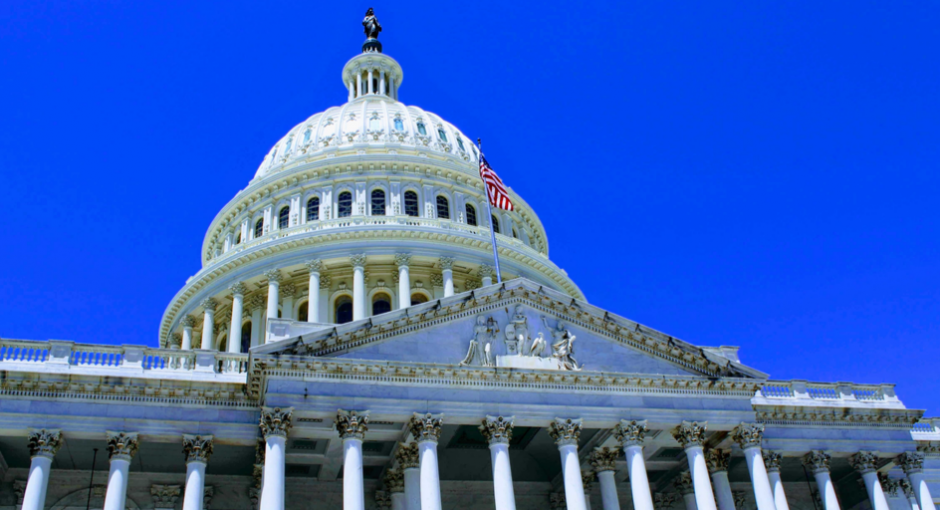Although Congress was able to pass a $1.2 trillion bipartisan infrastructure package last week, the nearly $1.8 trillion Build Back Better bill remains bogged down by infighting among Democrats. Its numerous drug pricing provisions will likely undergo changes prior to any votes.
For now, the bill contains a limited drug price negotiation provision for the Medicare program, as well as a $35 monthly cap on out-of-pocket costs (or 25% of the negotiated price) for individuals who require insulin. The bill also would require manufacturers to pay the government rebates on certain drugs reimbursed by Medicare Parts B and D if a drug’s price rises faster than the rate of inflation.
The pharmaceutical industry has been lobbying congressional Democrats intensely. Drug-connected lobbies and political action committees contributed $89 million to members of Congress last year, of which 61% went to Democrats, according to the research site Open Secrets. Such contributions likely played a role in eliminating a provision that would have allowed the Medicare program to negotiate directly on drug prices for its enrollees. A vastly scaled-back plan has replaced that provision. It will allow negotiations on no more than 20 drugs at a time whose exclusivity periods have already expired.
Some 340B covered entity advocates worry that the price negotiation and inflation rebate provisions could reduce entities’ 340B savings. Nonetheless, they are pleased that a provision that would have resulted in lost savings in the Medicaid managed care setting was dropped from the bill. It would have required Medicaid managed care organizations (MCOs) and/or their pharmacy benefit managers to limit payment for covered outpatient drugs, including 340B purchased drugs, to ingredient cost plus a dispensing fee. If such language ever became law, 340B entities would lose the ability to earn revenue by billing Medicaid MCOs at a markup over 340B acquisition cost.
Covered entity advocates are also pleased that the number of drugs up for government negotiation has been significantly scaled back. 340B providers feared that the prices negotiated by Medicare could erode the margin that covered entities are able to extract from both government and commercial payors. They argue that they need these margins to meet the 340B program’s goals to stretch scarce federal resources as far as possible, reaching more eligible patients and providing more comprehensive services.
Another part of the bill would extend Medicaid drug rebates to drugs provided under states’ stand-alone Children’s Health Insurance Programs (CHIP), 340B government relations experts said. As of January 2020, 35 states’ CHIP programs were either entirely or partially separate from their state’s Medicaid program. These CHIP programs currently cannot participate in Medicaid drug rebate program.
The Build Back Better bill language would amend the 340B statute to extend the existing prohibition on 340B discounts and Medicaid rebates on the same drugs to the CHIP program.
The journal Health Affairs reported that the Build Back Better bill would require pharmacy benefit managers (PBMs) to provide employer groups and other health plan sponsors detailed reports on their drug coverage every six months. They would also have to disclose data such as utilization rates, out-of-pocket spending by PBM participants, and compensation paid to brokers and other third-party consultants. PBMs would face fines for not following these reporting rules.
The bill would also rescind a rule put forward by the Trump administration that would require PBMs to provide rebates to consumers at the point of purchase.
Lobbying groups representing both PBMs and pharmaceutical firms have criticized the proposals.
“We appreciate congressional negotiators’ focus on prescription drug prices and applaud the inclusion of repeal of the rebate rule, a rule which threatens to dramatically increase premiums for Medicare beneficiaries and costs to taxpayers,” said Pharmaceutical Care Management Association CEO and President J.C. Scott. The PCMA represents PBMs. “At the same time, we are concerned that this important progress could be simultaneously blunted by the inclusion of policies that would empower drug manufacturers to discount less deeply and result in higher costs for patients, simply for the purpose of giving political cover to the pharma industry.”
CQ Roll Call has reported that changes are likely in the PBM provisions of the bill before it goes to a vote in Congress.
The Pharmaceutical Research and Manufacturers of America was much blunter in its criticism of the Build Back Better bill—and also highlighted the friction between various drug industry players on pricing policies.
“This drug pricing plan is not the balanced approach we need to build a better, more affordable health care system. Instead, it will make a broken system even worse,” said PhRMA CEO and President Stephen Ubl. “It will undermine important incentives that encourage continued innovation after a medicine is first approved, innovation that often leads to better treatments and health outcomes for patients. The plan creates perverse incentives that will discourage the development of lower-cost generic medicines and biosimilar treatments. It also fails to address the roles PBMs and insurers play in forcing patients to pay more than they should for their medicines.”
A vote on the roughly 2,500-page bill may be further delayed by an announcement Tuesday from the Congressional Budget Office (CBO) that it would take some time to score the entire bill. Some lawmakers say their support for the bill hinges on its CBO score.
“The analysis of the bill’s many provisions is complicated, and CBO will provide a cost estimate for the entire bill as soon as practicable,” the agency said in a statement.
House Speaker Nancy Pelosi (D-Calif.) and other prominent House members, such as Rep. Pramila Jayapal (D-Wash.), say the bill will be passed after the CBO scoring is released. But questions remain as to whether it will undergo significant changes in the Senate, where Democratic Sens. Joe Manchin of West Virginia and Kyrsten Sinema of Arizona have sent mixed messages about their support for the bill.


